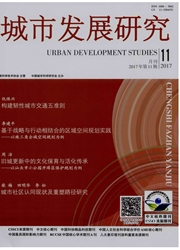

 中文摘要:
中文摘要:
通过司法审查以规制行政裁量是推进行政法治的重要环节。刊载于南京国民政府《司法院公报》与《司法公报》上的426件行政法院判决书显示,行政法院在审判实践中,对被诉的行政裁量行为在形式合法性与内容合理性上均加以审查。形式合法性审查包括审查行政裁量的事实依据、法律依据以及裁量权的行使有没有违反行政法基本原理等方面。内容合理性审查则突破了1932年《行政诉讼法》第1条对行政行为只允许合法性审查的约束,借助中国传统司法"济情法之平"理念,对部分不合理的行政裁量行为判决变更。行政法院的审判实践对推动当时的行政法治具有积极意义,但国民政府未能及时修订法律,将行政裁量合理性审查问题确定下来,从而降低了司法审判的确定性与可预见性。
 英文摘要:
英文摘要:
Judicial control of administrative discretion through judicial review is an important way to realize the rule of administrative law. During the days of Republican China, The administrative court in administrative trial practice, for all kinds of administrative discretion at the time, launched a multi-dimension, multi-level review to examine the legitimacy and rationality review for the program. Legitimacy review mainly included the legal basis, the administrative discretion of the facts and legal interpretation and application review. The rationality review was not limited to the "1932 administrative procedure law", but learnt from some traditional Chinese legal concept, making appropriate adjustments. This practice had positive effect on administrative legality, but the government didn't amend the law subsequently and thus reduced the certainty and predictability of trials.
 同期刊论文项目
同期刊论文项目
 同项目期刊论文
同项目期刊论文
 期刊信息
期刊信息
